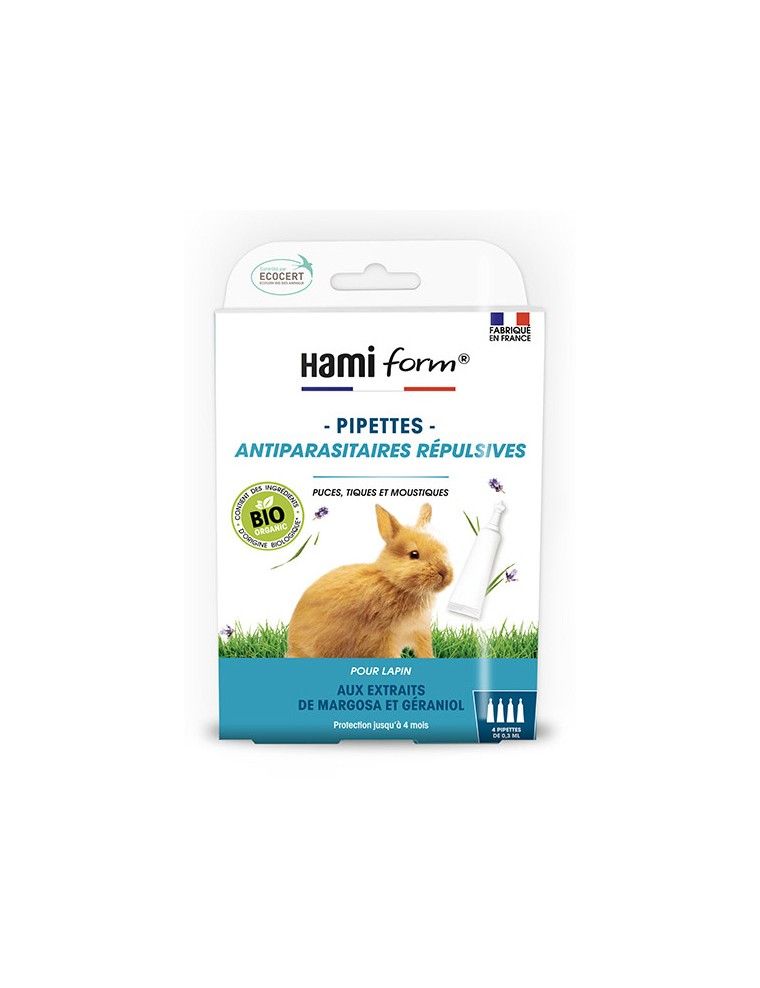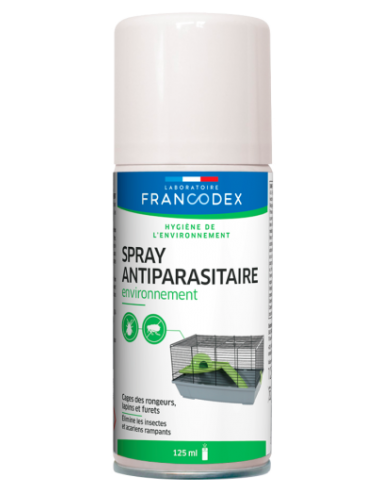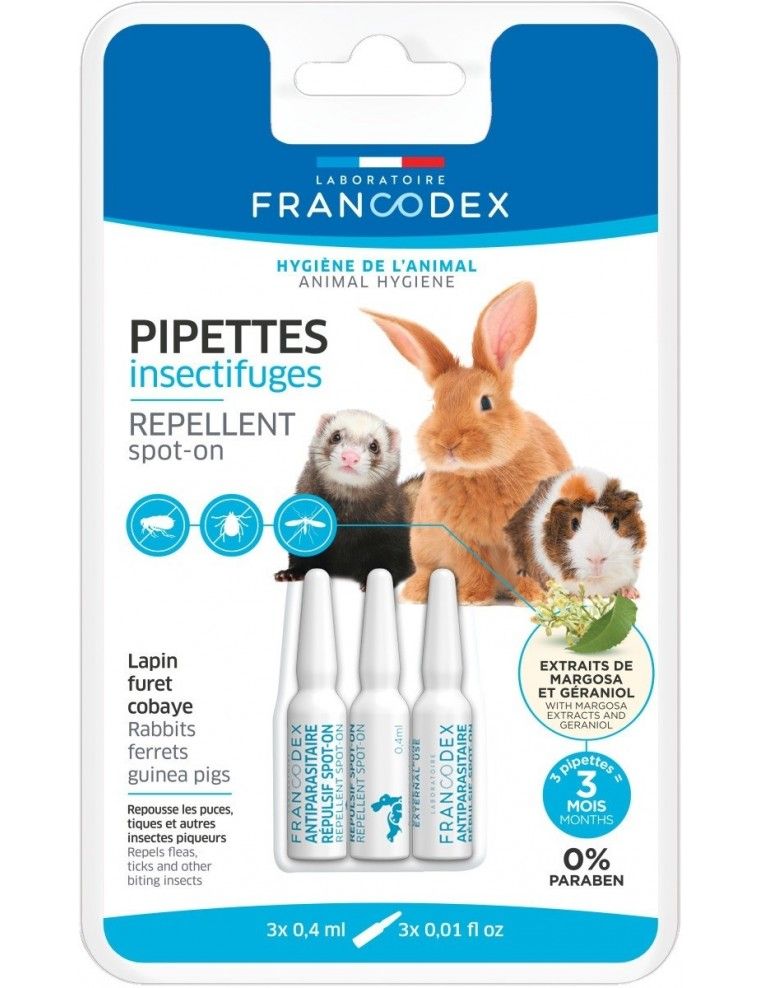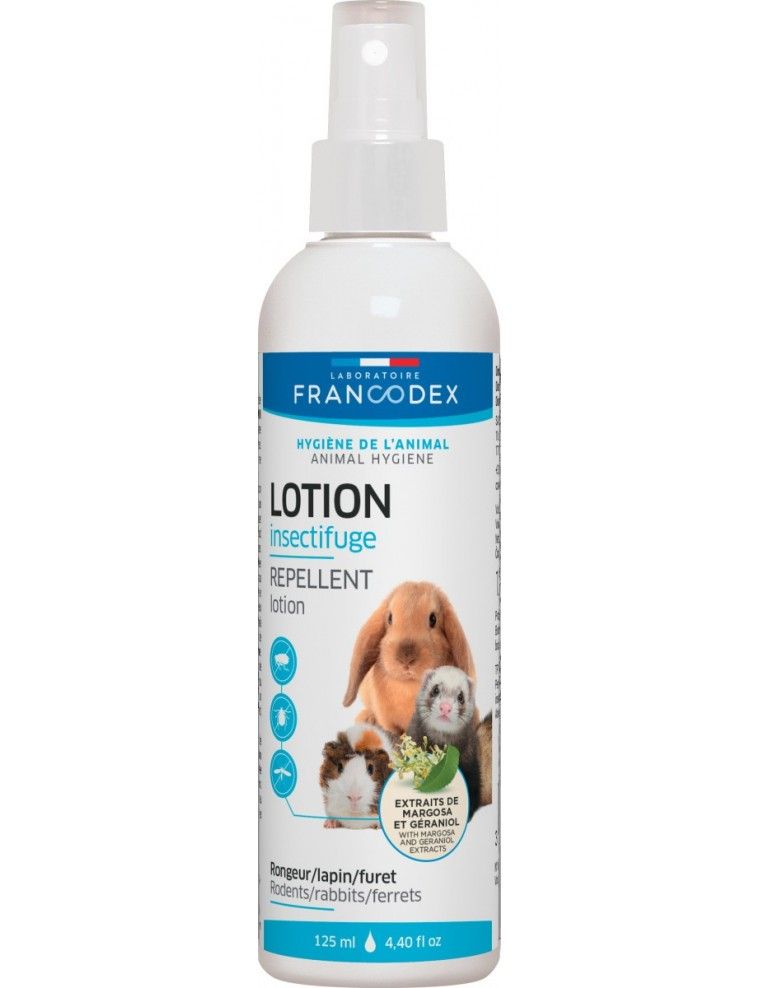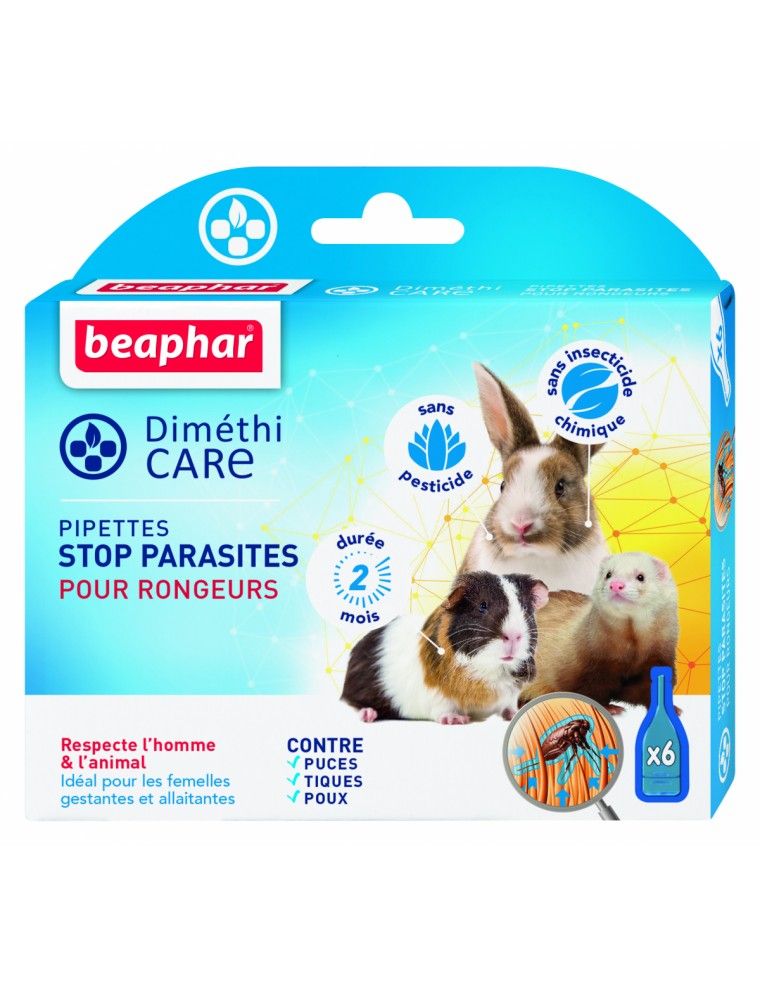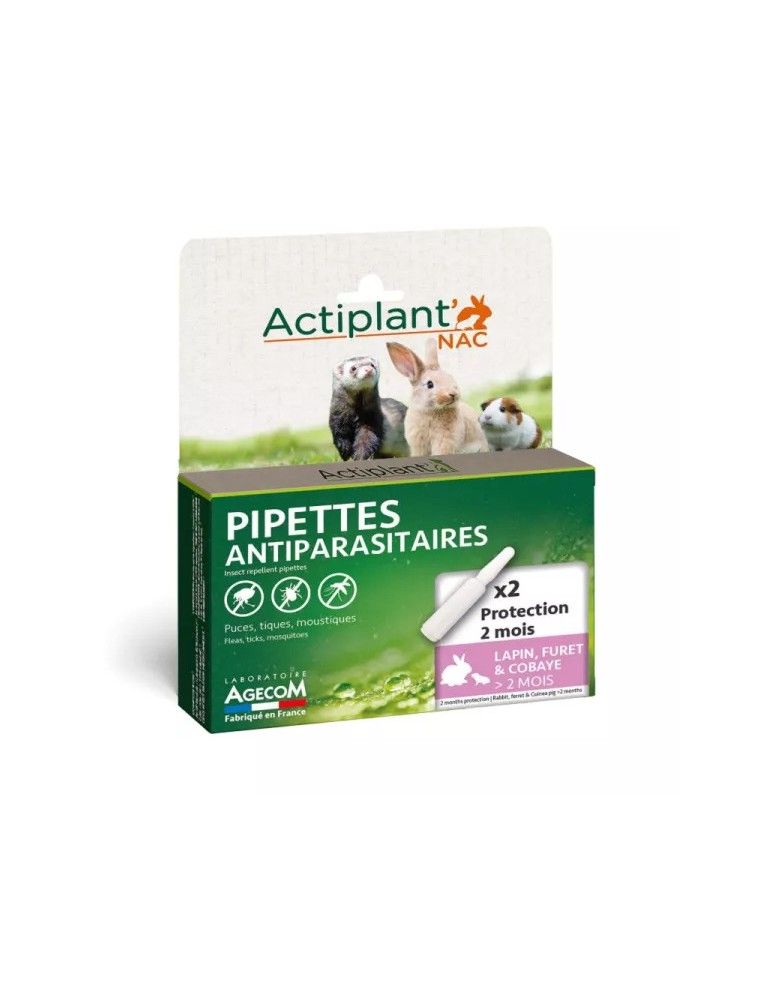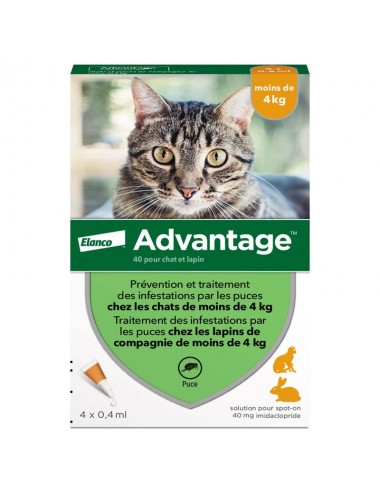- 5 in stock
Anti-parasitic Rabbit
Essential protection: Antiparasitics for rabbits
At Le Petit Rongeur, the health of your rabbits is our priority. This is why we offer a rigorous selection of antiparasitics from recognized brands such as Francodex , Beaphar , Hamiform , ensuring effective protection against parasites. Our products, including pipettes, sprays, powders, and food supplements, are designed to guarantee the well-being of your companion, by preventing the risks linked to fleas, ticks and other pests.
Choosing the right pest control
Choosing the ideal parasiticide depends on several factors, including the age, weight of your rabbit, and the type of protection you are looking for. Whether skin treatments such as pipettes and sprays, or preventive solutions such as food supplements, each product is selected to offer long-lasting protection while respecting your pet's sensitivity.
Prevention and treatment: a dual approach
In addition to treating your rabbit directly, it is crucial to take care of its environment. Our antiparasitics for cages ensure perfect hygiene by eliminating parasites from your rabbit's habitat, thus complementing the action of the products applied to the animal. This dual approach ensures maximum protection against infestations and contributes to the overall health of your companion.
Responsible use of antiparasitics
Any use of pest control products must be done with caution. We remind you of the importance of consulting a veterinarian before initiating any treatment, to ensure that the chosen product is perfectly suited to the specific needs of your rabbit. Regular veterinary monitoring is essential to ensure that the care provided truly contributes to the health and well-being of your animal.
Commitment to animal welfare
At Le Petit Rongeur, our commitment goes beyond the supply of pest control products. We ensure that every rabbit owner has the knowledge and tools necessary to offer their animal a healthy and happy life, including a balanced diet, impeccable hygiene, and a clean and comfortable habitat.
Anti-parasitic
Essential protection: Antiparasitics for rabbits
At Le Petit Rongeur, the health of your rabbits is our priority. This is why we offer a rigorous selection of antiparasitics from recognized brands such as Francodex , Beaphar , Hamiform , ensuring effective protection against parasites. Our products, including pipettes, sprays, powders, and food supplements, are designed to guarantee the well-being of your companion, by preventing the risks linked to fleas, ticks and other pests.
Choosing the right pest control
Choosing the ideal parasiticide depends on several factors, including the age, weight of your rabbit, and the type of protection you are looking for. Whether skin treatments such as pipettes and sprays, or preventive solutions such as food supplements, each product is selected to offer long-lasting protection while respecting your pet's sensitivity.
Prevention and treatment: a dual approach
In addition to treating your rabbit directly, it is crucial to take care of its environment. Our antiparasitics for cages ensure perfect hygiene by eliminating parasites from your rabbit's habitat, thus complementing the action of the products applied to the animal. This dual approach ensures maximum protection against infestations and contributes to the overall health of your companion.
Responsible use of antiparasitics
Any use of pest control products must be done with caution. We remind you of the importance of consulting a veterinarian before initiating any treatment, to ensure that the chosen product is perfectly suited to the specific needs of your rabbit. Regular veterinary monitoring is essential to ensure that the care provided truly contributes to the health and well-being of your animal.
Commitment to animal welfare
At Le Petit Rongeur, our commitment goes beyond the supply of pest control products. We ensure that every rabbit owner has the knowledge and tools necessary to offer their animal a healthy and happy life, including a balanced diet, impeccable hygiene, and a clean and comfortable habitat.
- in replenishment
- 4 in stock
- 3 in stock
- in replenishment
- 8 in stock
- -20%
- -20%
- 4 in stock
Questions / Réponses
Les lapins peuvent être affectés par divers parasites, tels que les puces, les tiques, les acariens (responsables de la gale auriculaire ou de la gale des pattes), et les vers. Les symptômes varient selon le type de parasite, mais peuvent inclure des démangeaisons, une perte de poils, des lésions cutanées, ou un comportement inhabituel.
Prévenir les infestations parasitaires implique de maintenir un environnement propre pour votre lapin, avec un nettoyage régulier de sa cage et de son aire de repos. Évitez le contact avec des animaux infectés et consultez votre vétérinaire pour des recommandations sur les traitements préventifs antiparasitaires adaptés aux lapins.
Non, il est dangereux d'utiliser des antiparasitaires destinés aux chiens et aux chats sur les lapins, car certains composés chimiques peuvent être toxiques pour eux. Consultez toujours un vétérinaire pour obtenir des conseils sur les produits antiparasitaires sûrs et efficaces spécifiquement conçus pour les lapins.
Le traitement dépend du type de parasite. Les infestations de puces peuvent être traitées avec des produits antiparasitaires prescrits par un vétérinaire, tandis que les acariens nécessitent souvent des médicaments antiparasitaires topiques ou oraux. Les infections par des vers peuvent nécessiter un traitement par des vermifuges. Suivez toujours les instructions de votre vétérinaire pour le traitement et la posologie.
Certains parasites, comme les puces, peuvent affecter les humains en causant des démangeaisons et des désagréments, mais la plupart des parasites spécifiques aux lapins ne sont pas directement transmissibles aux humains. Cependant, une bonne hygiène et un traitement rapide des infestations sont importants pour minimiser les risques.
Les signes d'une infestation parasitaire peuvent inclure des grattages excessifs, des zones de peau rouge ou irritée, une perte de poils, des croûtes, une altération de l'état général, ou des signes de douleur. En cas de doute, consultez un vétérinaire pour un diagnostic et un traitement appropriés.
Les lapins peuvent contracter des parasites par contact avec des animaux infectés, par l'environnement (par exemple, une litière contaminée ou l'herbe), ou par des vecteurs comme les puces et les tiques. Maintenir un environnement propre et éviter le contact avec des animaux potentiellement infectés sont des mesures préventives clés.
